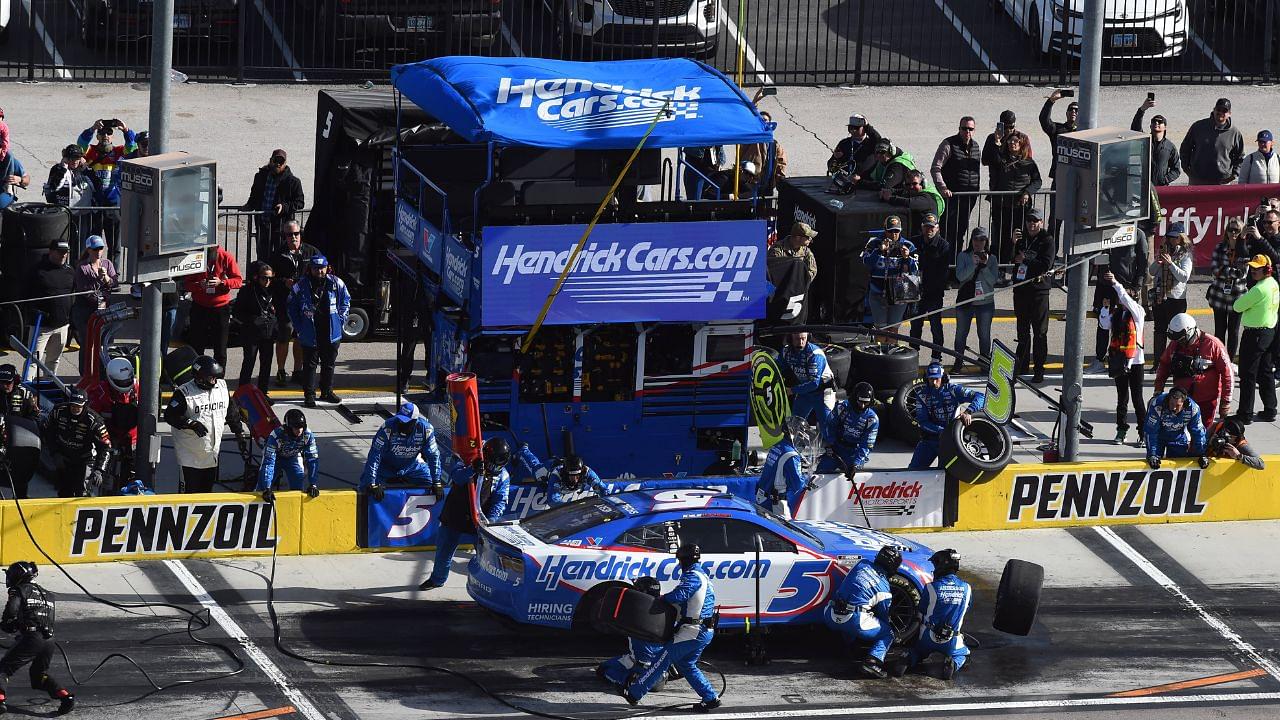Cup Series drivers have long been asking for NASCAR to increase the horsepower in the Next Gen car to tackle the lackluster racing experience in short tracks. However, that was the last thing they needed after a chaos-filled 500 laps at the Bristol short-oval on Sunday. Though the demand remains, it is highly unlikely that the sanctioning body will give in to it.
Advertisement
The engine under the hood of the Next-Gen car that is currently in use maxes out at 670 HP. While earlier generations of stock cars featured powers closer to the 1000 HP mark, NASCAR reasoned the reduction as a move to improve safety and encourage the entry of new engine-makers. Though valid, the cost of this reasoning has been heavy for all pockets.
The cars are now underpowered to enable passing on short tracks and have inflicted a negative impact on both the driving and viewing experience. The promotion tested and implemented a new aerodynamic short-track package in Phoenix earlier this month to see if it could be an alternative to reversing the horsepower. However, the results of the effort were met with mixed reviews at best.
Several key figures, including Kevin Harvick, Denny Hamlin, and Kyle Larson, have been very vocal in asking the promotion to add more juice to their engines. Two-time Cup Series champion Logano notably said to Fox Sports, “We want more power. It increases tire wear. It makes the track wider. And it’s more badass.”
2012 champion Brad Keselowski contended to Sportsnaut.com recently that more horsepower would increase discipline in drivers alongside bettering race quality. He quipped, “The car takes considerably less discipline to drive. That’s probably the biggest frustration, especially for drivers who raced in this series 10 years ago.“
Why NASCAR does not want to increase horsepower despite increasing demands
Despite strong calls from important names, the sanctioning body continues to be reluctant to add more power to the engines. The prime reason behind this is that it is convinced increasing the horsepower will not solve the passing problem on short tracks, but will certainly increase engine manufacturing costs for teams.
John Probst, NASCAR’s chief racing development officer, told Fox Sports, “If you add the horsepower, you add the cost, then you see if it is better. There’s no guarantee you get there, and it would be any better. And I think there’s some evidence that shows as we add horsepower, they run further apart.”
Under such impressions, it is understandable why the body doesn’t want to gamble with the sport. Adding weight to Probst’s contention is the fact that new manufacturers would not want to invest in high-end engines at a time when NASCAR is looking at opportunities in alternative fuel engine packages.
NASCAR has tested its battery electric vehicle for three days at Martinsville. Did 340 laps over three days (David Ragan drove it). Compact utility vehicle body not specific to a manufacturer. Lap times on third day within a couple tenths of second from a Cup car. https://t.co/HHyjuGZPcN
— Bob Pockrass (@bobpockrass) January 23, 2024
Against the reasoning of Probst, there have been voices that refused to acknowledge additional cost as a factor to deter from increasing horsepower. Doug Yates, head of Roush Yates Engines, notably said last year that increasing the power from 670 HP to 750 HP will not be heavy on the pocket, since the engine is designed to handle as much additional pressure.
He said, “Very easily, in my opinion, we could go back to 750 horsepower pretty quickly. That’s not too hard, and it would not really increase the cost very much. Could we add 80 horsepower back? Yes.”
This works because the current engine is the same as the one that produces 750 HP. NASCAR uses a thick plate with holes in it to regulate the airflow that controls the horsepower. So, the holes just have to be made a tad bit larger to increase the power up to 750 HP. Not that big of a gamble, if you ask Yates.
As things stand after two short track races in the 2024 season, NASCAR is steadfast in its opinion that more horsepower will not help the cause. What it is prepared to do is work on the upgraded short-track package and make it satisfying for all stakeholders. The next short-track race on the calendar will be at Richmond on March 31.








